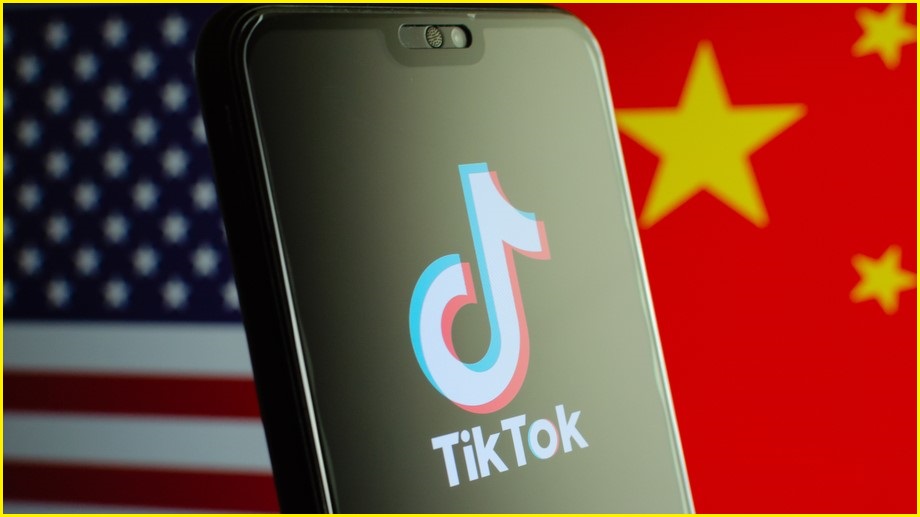A bill that would ban TikTok if its parent company does not divest the social media platform in America has passed the US House of Representatives overnight, but faces an uphill battle in the Senate.
The legislation, which requires the China-based company ByteDance to sell TikTok in the US or it will legally ban app stores from hosting it in America, passed with overwhelming support as 352 members of Congress backed it and just 65 voted against it.
It’s the first time a US chamber of Congress has backed a bill potentially banning TikTok after the social media giant has been in the crosshairs of politicians from both sides of the aisle for more than four years, as the New York Times reported.
The bill still needs to be passed in the Senate for President Joe Biden to sign it into law, and its future there is more uncertain.
The House vote was fast-tracked by Republicans after it was unanimously supported by a Committee of Congress last week.
The lawmakers’ concerns around TikTok centre on ByteDance’s relations with the government of China, its data collection practices, and the potential for it to hand over the personal data of US users to China authorities under national security laws.
TikTok has repeatedly said it has not done this and would not hand over data to the Chinese government.
Republican representative Mike Gallagher said the bill was not a ban on TikTok, as ByteDance has the opportunity to avoid this by divesting the service in America.
“TikTok could live on and people could do whatever they want on it provided there is that separation,” Gallagher said.
“It is not a ban – think of this as a surgery designed to remove the tumour and thereby save the patient in the process.”
Gallagher said the move “forces TikTok to break up with the Chinese Communist Party” and that it is a “common-sense measure to protect our national security”.
Tiktok unhappy
TikTok spokesperson Alex Haurek criticised the hastened vote for the bill and said it was clearly a ban.
“[The] process was a secret and the bill was jammed through for one reason: It’s a ban,” Haurek said.
“We are hopeful that the Senate will consider the facts, listen to their constituents, and realise the impact on the economy – seven million small businesses – and the 170 million Americans who use our service.”
The support for the bill by Republicans in the House came despite likely Republican presidential candidate nominee and former president Donald Trump’s about-face to oppose a ban on TikTok.
Trump said such a ban would give too much power to Facebook, which he labelled an “enemy of the people”, and would make young people “go crazy”.
“The thing I don’t like is that without TikTok, you can make Facebook bigger, and I consider Facebook to be an enemy of the people, along with a lot of the media,” Trump said.
“I think Facebook has been very dishonest. I think Facebook has been very bad for our country, especially when it comes to elections.”
This reversal comes after Trump issued an executive order while president in 2020 attempting to ban TikTok in the US, followed by a state-based ban in Montana in 2023.
Both of these efforts were struck down by courts on constitutional grounds.
It’s unclear whether the bill will receive the same level of support in the Senate, with members from both major parties raising concerns with it.
Democratic Senator Elizabeth Warren said that efforts are needed to curb social media firms, but that they need to “apply across the board”.
Another Democratic Senator, Mark Warner, said he had “some concerns about the constitutionality of an approach that names specific companies”, but he will still take a “close look at this bill”.
Republican majority leader in the Senate Chuck Schumer has been non-committal on the bill.
It is unclear when the bill will be brought for a vote in the Senate.
The way of Australia
Prime Minister Anthony Albanese said there are no plans for a similar ban in Australia following the bill's passage in the US House.
"We haven't got advice at this stage to do that," Albanese said.
"I think you've got to be pretty cautious. You've always got to have national security concerns front and centre, but you also need to acknowledge that for a whole lot of people, this provides a way of them communicating."
Opposition Leader Peter Dutton has called on Albanese to "show leadership" and act to ban TikTok.
Sydney University Professor of Business Information Systems Uri Gal agreed, saying an opportunity had presented itself for Australia to consider a similar ban of Tik Tok.
“The scope of data surveillance by TikTok may be even more expansive than other popular social media apps,” Gal said.
“Given its large and young Australian user base, it is quite likely that our country’s future Prime Minister and cabinet members are being surveilled and profiled by China.
"Surely, if nothing else, this should give us reason to pause and think whether the app should be used in Australia.”










